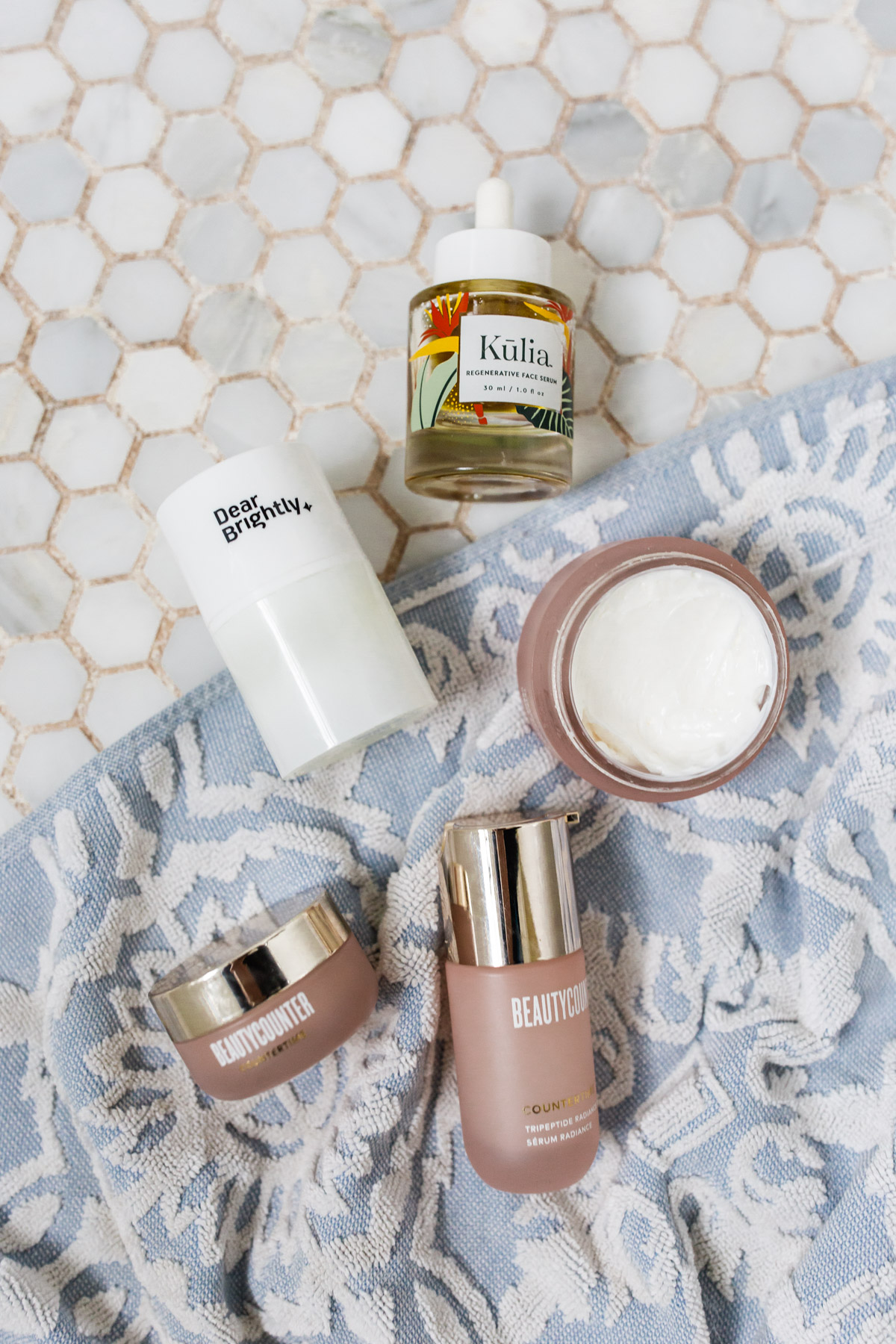
As a self-proclaimed clean beauty junkie, retinol and retinoids have been something I’ve openly avoided for the past few years. Ever since we decided to start trying for a family around 5 years ago, I swore off them off. Doctors will tell you not to use them while pregnant or breastfeeding, which consumed a large portion of those 5 years, so I figured I was done with it.
But, after this last pregnancy, the dark spots and melasma found me so self-conscious. While my skin itself was clearer and smoother than it has been in years, I had all these blotchy dark spots on my cheeks and forehead and felt embarrassed to go without makeup. I had this ah-ha moment where I was like, okay, so technically it’s not “clean”, but how bad is it? And started doing my own research. Like any toxic ingredients, it’s linked to some scary things, but all the conditions have to be right for that thing to happen. And, for the record, many clean skincare companies do not consider this ingredient toxic, so you will find it in plenty of clean brands!
Knowing that I eat very clean, exercise, and otherwise use non-toxic products, I decided for my own self-confidence, it was worth going back. I’d used a retinoid in the past and had the nicest skin of my life.
At the end of the day, I decided, life’s too short to be worried about something like this that’s fixable.
What Is The Difference Between Retinol and Retinoid
Okay, so onto retinols and retinoids—what is the difference? Is there one?! It seems like they get used interchangeably these days, but I wanted to dedicate a post to explain the differences between the two powerful anti-aging ingredients now that I’m well-versed in them. My hope is that after this, you can make a better decision on what’s best for you and your skin.
What Is Retinol
I think we’ve all heard of retinol, or retinyl palmitate. It’s touted for its powerful anti-aging powers and used in skincare products everywhere. It is a Vitamin A derivative that speeds up cell-turnover to reveal clearer, more youthful skin. Retinol is the over-the-counter version of this anti-aging ingredient. Many anti-aging skincare lines use this ingredient because it’s so effective, which is why you see so many retinol creams on the market.
Most skincare products sit on top of your skin and help remove dead skin cells, but retinol absorbs into your skin to work deeper. Here, it helps to boost collagen and shrink the appearance of fine lines. On the top of your skin, it does an amazing job of exfoliating. If you struggle with breakouts, it works wonders for that as well.
Retinol Skincare Products
What Is A Retinoid
Retinoid is also a form of vitamin A, actually retinoid is a catchall term for vitamin A derivatives. Retinol is a type of retinoid, it’s just a less potent version. Retinoids are used the same way that retinol is used—it speeds up cell turnover, boosts collagen and elastin production, evens skin tone, smooths fine lines and wrinkles, and fades pigmentation. To dermatologists, it is the best ingredient they have to work with!
Retinoids are typically made of retinoic acid (retin-A, or tretinoin).
How They Differ
Time to See Results
Because retinoids are more potent, you will see the results faster. These changes can bring on a few annoying side effects as your skin adjusts—dry skin & some redness are the most common. There might be a short purging period too. Because your cell turnover is sped up, any pimples that were hiding below will come to the surface more quickly, but they’ll be gone soon.
Potency
Retinoids are more potent than retinol and for this reason they are more effective and work faster than OTC retinol. Because they are more potent, you may experience some mild side effects as your skin adjusts, this part is normal and doesn’t last too long. In my opinion, the annoying side effects are worth it.
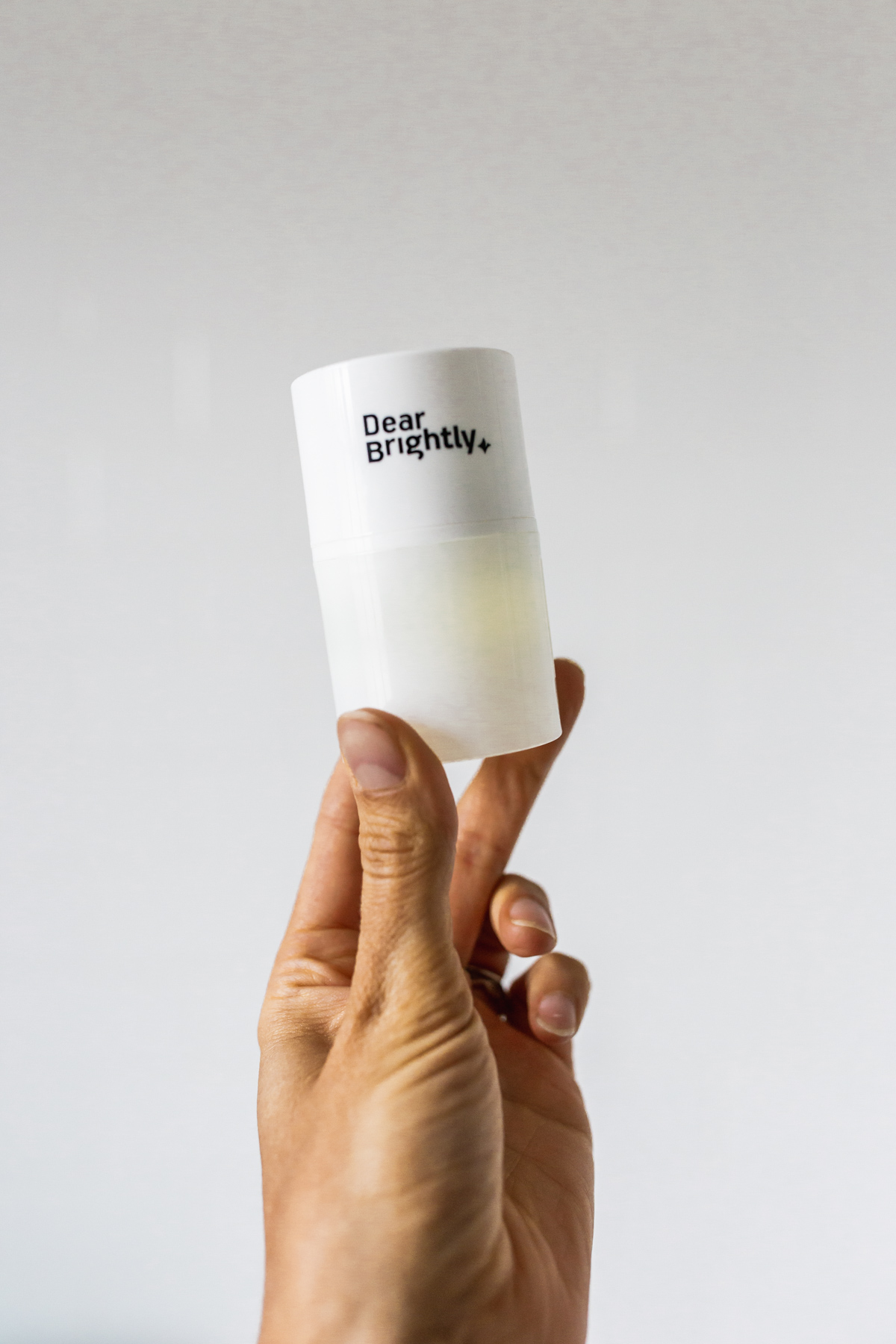
OTC vs. Prescription
Retinol is available over the counter. Retinoid is prescription only.
To get your hands on a retinoid, you’ll need a prescription from a board certified dermatologist. With tele-health becoming so ubiquitous, you can now get a prescription retinoid online. The retinoid product I use is Dear Brightly, and I’ve absolutely loved the product and the results (it’s been about 2 months now).
What They Have In Common
Both a Form of Vitamin A
I’ve already mentioned this, but both retinol and retinoid are vitamin A derivatives. Retinol is simply a less potent version.
Safe for All Skin Types
For the most part, retinol and retinoids are safe for all skin types. If you have oilier skin, you may be able to tolerate using it more frequently. If you have drier or sensitive skin, you may have to start with lower strength, or use less frequently to avoid irritation.
FDA-Approved
Both ingredients are FDA-approved for use in skincare products.
UV Sensitivity
If you are pregnant or breastfeeding, retinol is not safe to use. This is the ONE thing my doctor told me to stop using! It can also make your skin more sensitive to the sun, so make sure to apply SPF daily, though you should be doing that whether you’re using a retinol or not.
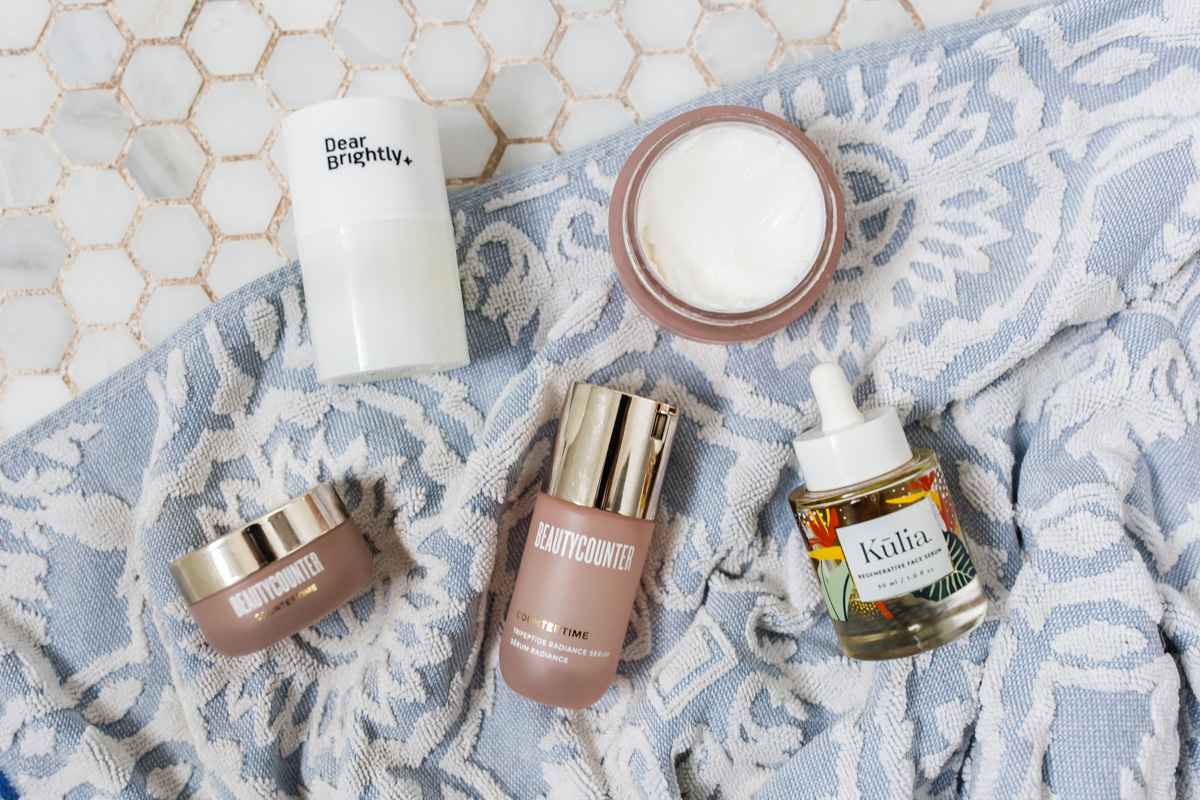
Not Safe for Pregnant or Breastfeeding Women
This was the one thing my doctor told me not to use while pregnant or breastfeeding, so sadly you cannot use these products during that time, no, not even the less potent retinol products.
I know some people will be wondering, so are you done with clean beauty? Absolutely not! The rest of my skincare routine is the still the same. The only difference is that once every other night, or sometimes every 3 nights, I use a retinoid instead of my typical serum.
It’s made a big difference in the texture of my skin, plus I rarely breakout. It’s been about 2 months since I started and my skin has definitely been through the super dry adjustment period (adding the balm as an overnight mask helped a TON). I’m starting to notice the dark spots and melasma less, so I’m hopeful that in another few months they look even better.
Well, that’s it! I hope this helps break it down for you and decide which product is best for you! Let me know if you have any questions!
BTW, DIY hair oil for growth, and the benefits of vitamin C serum and why you need one.
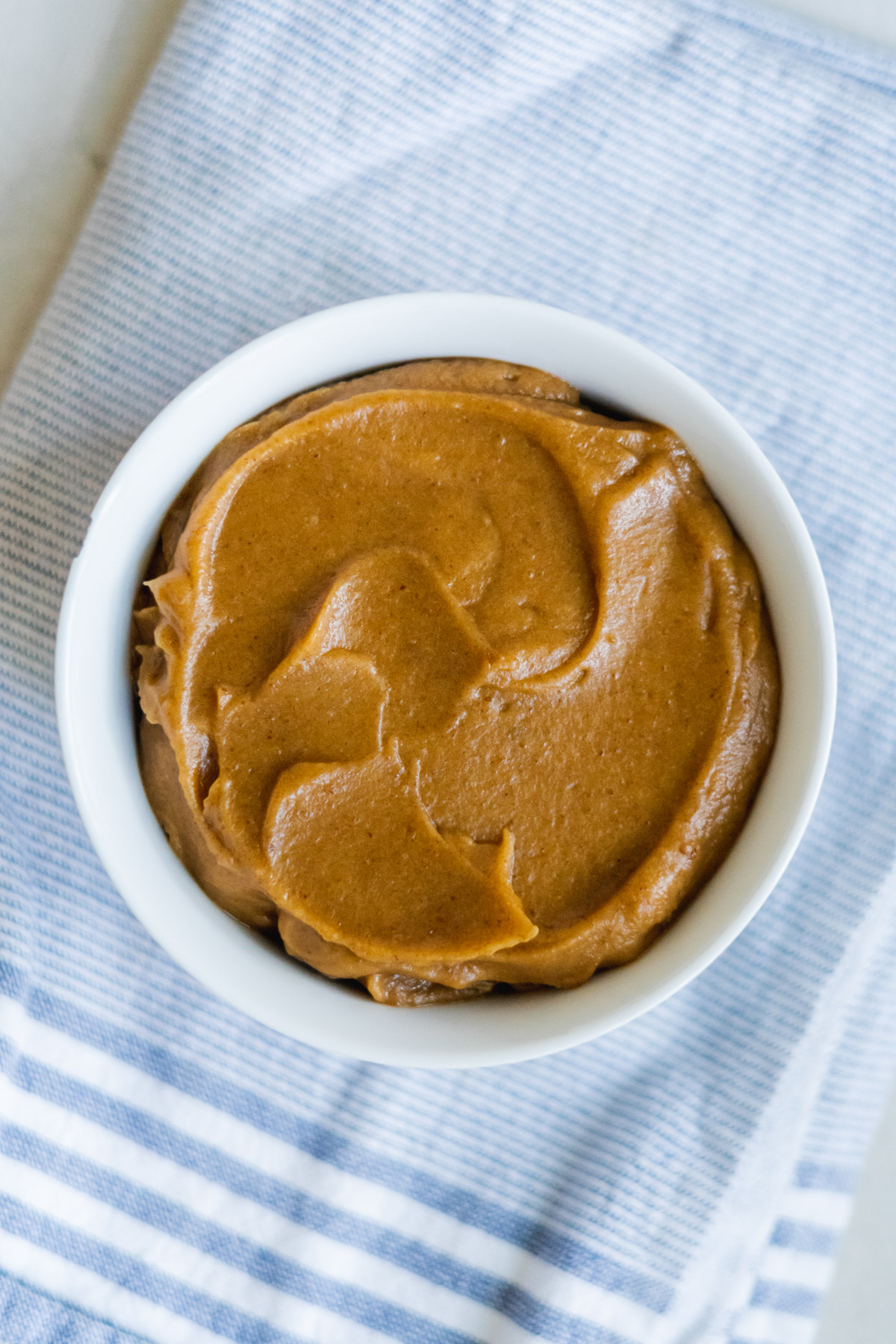
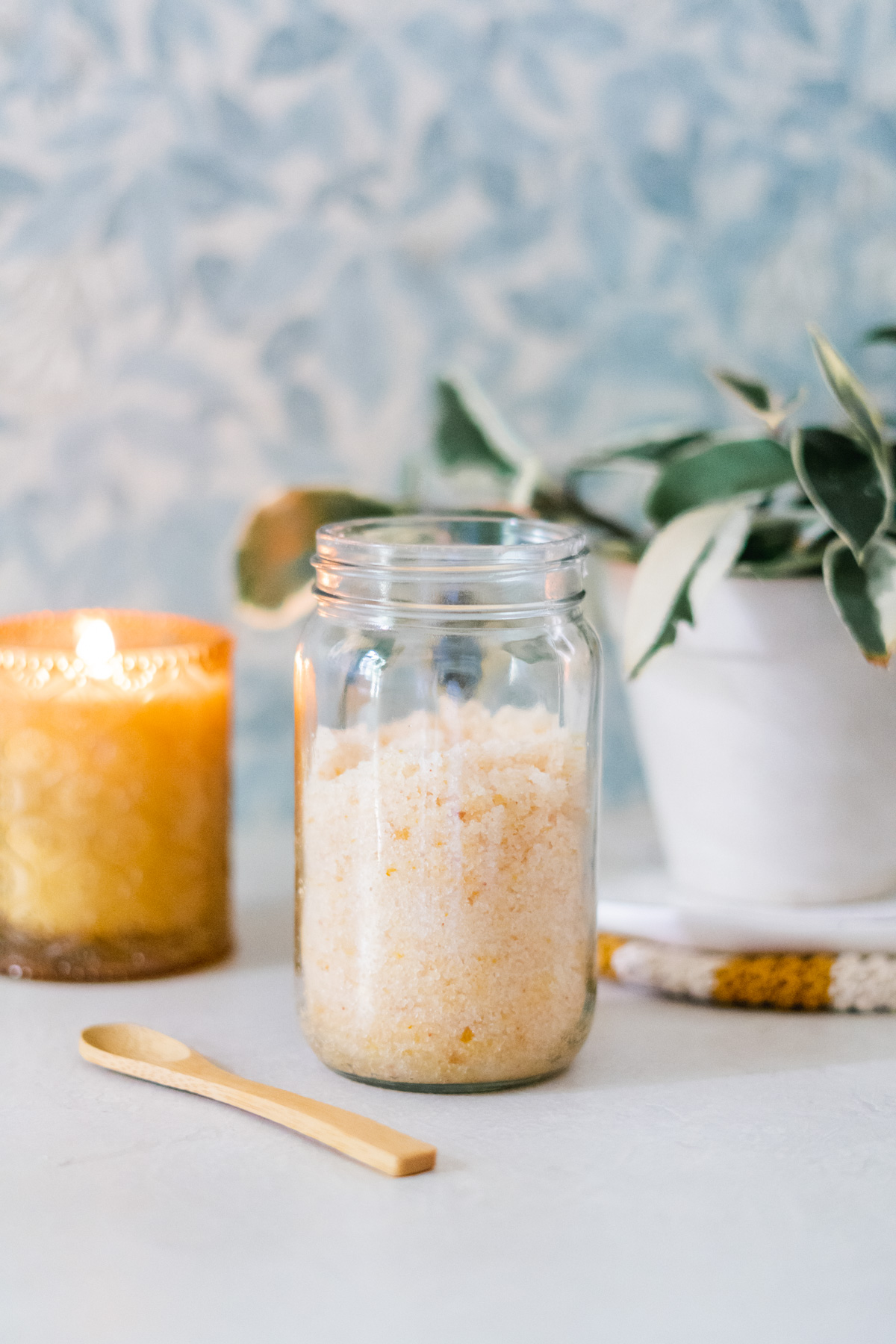
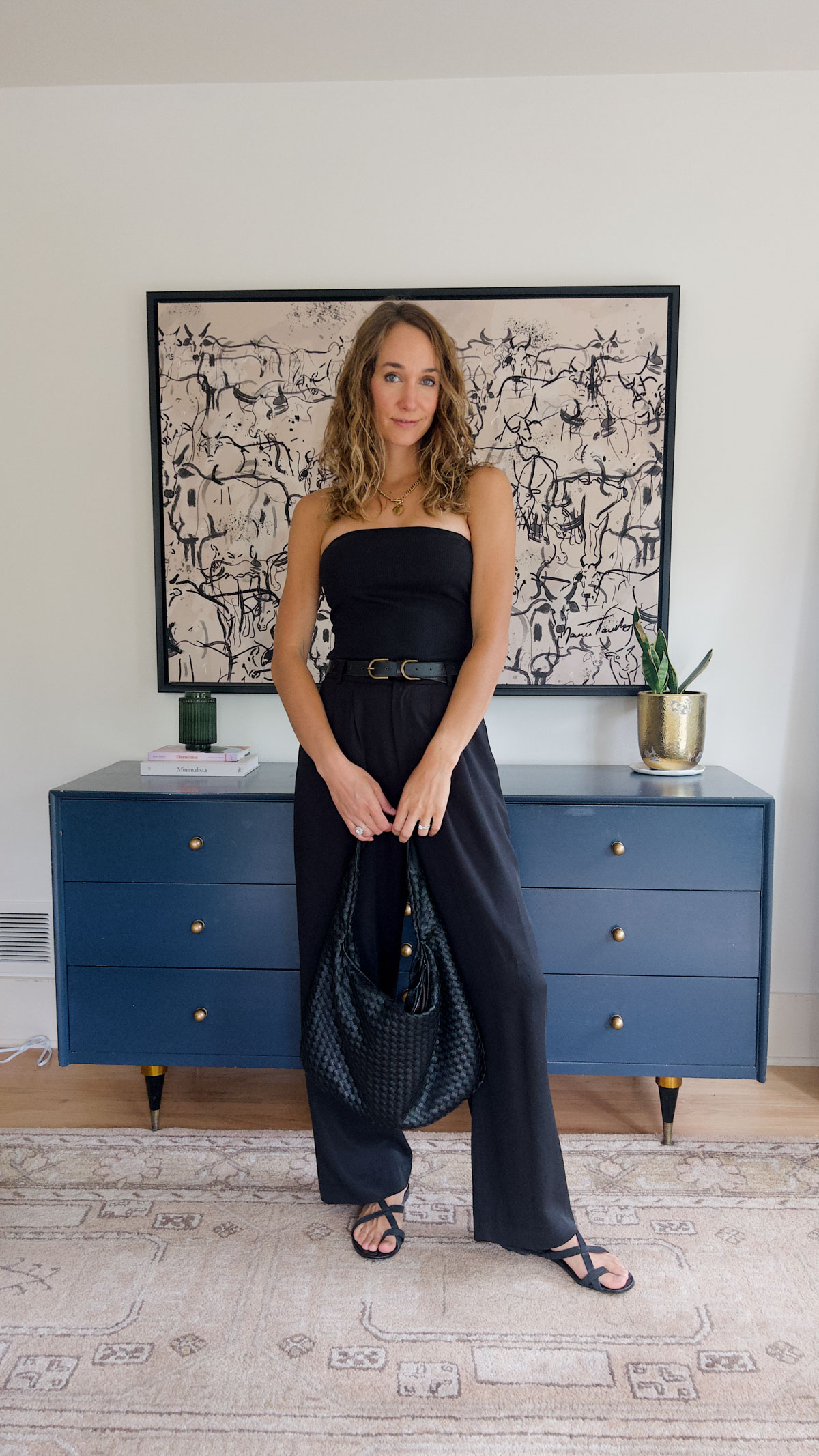
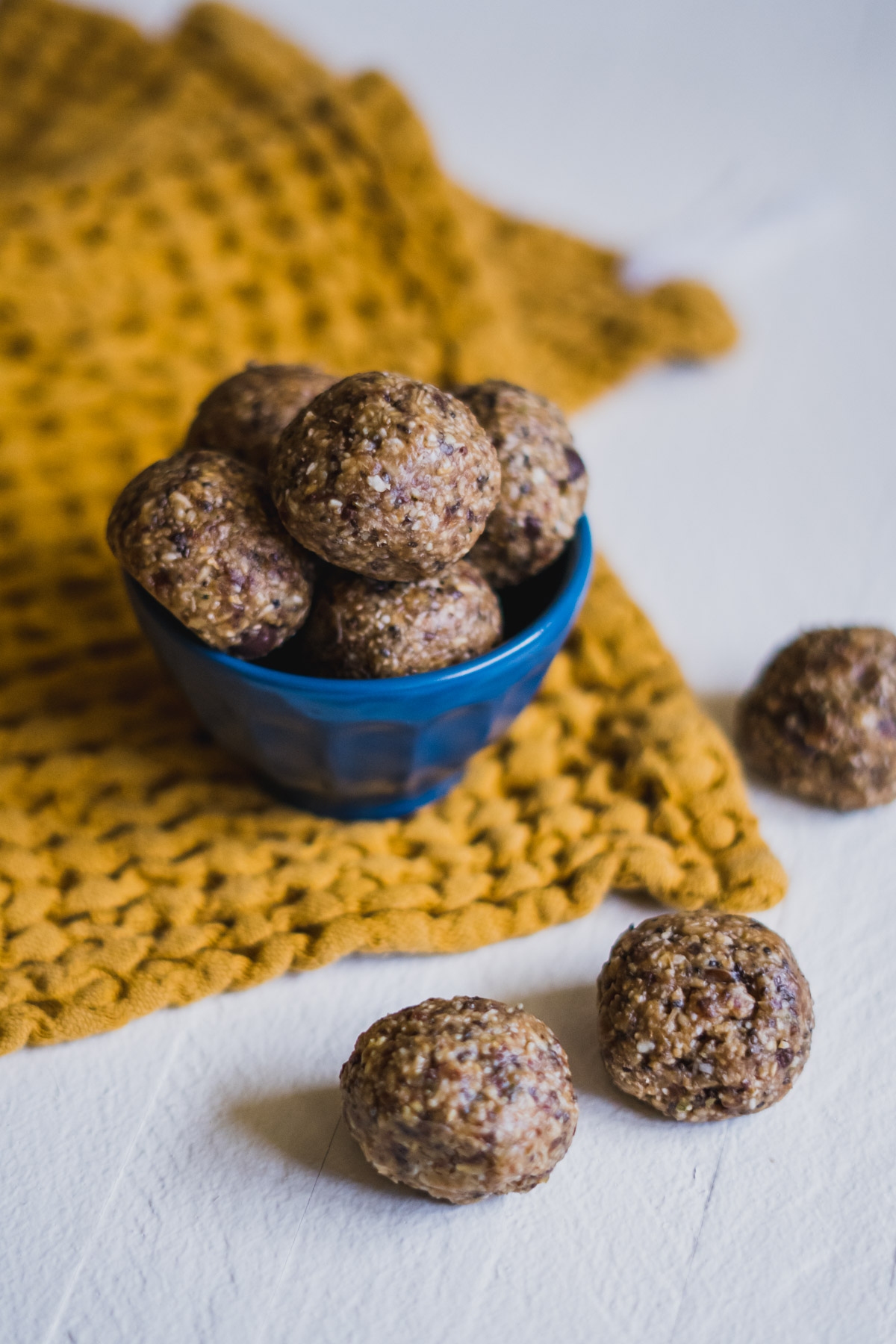



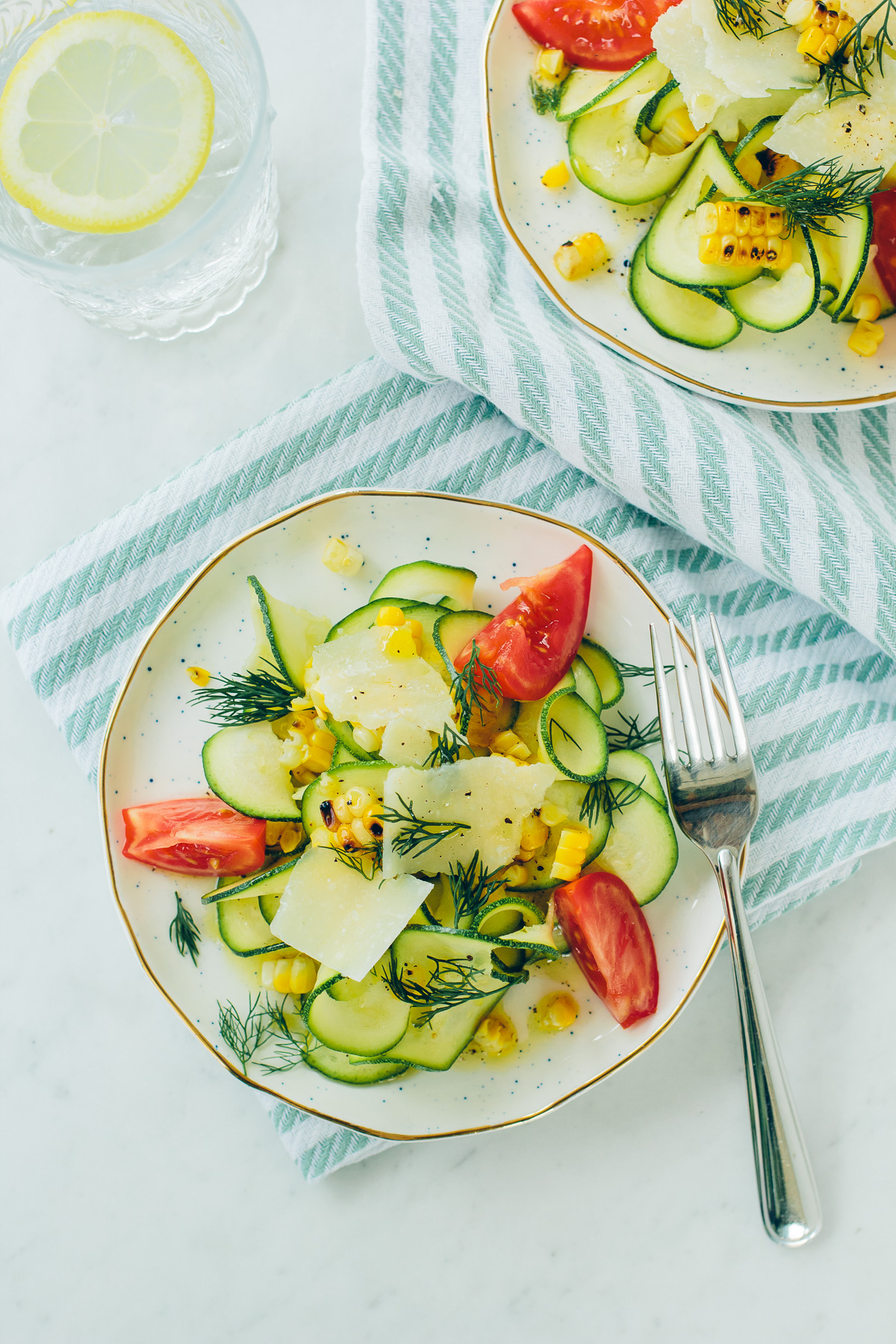

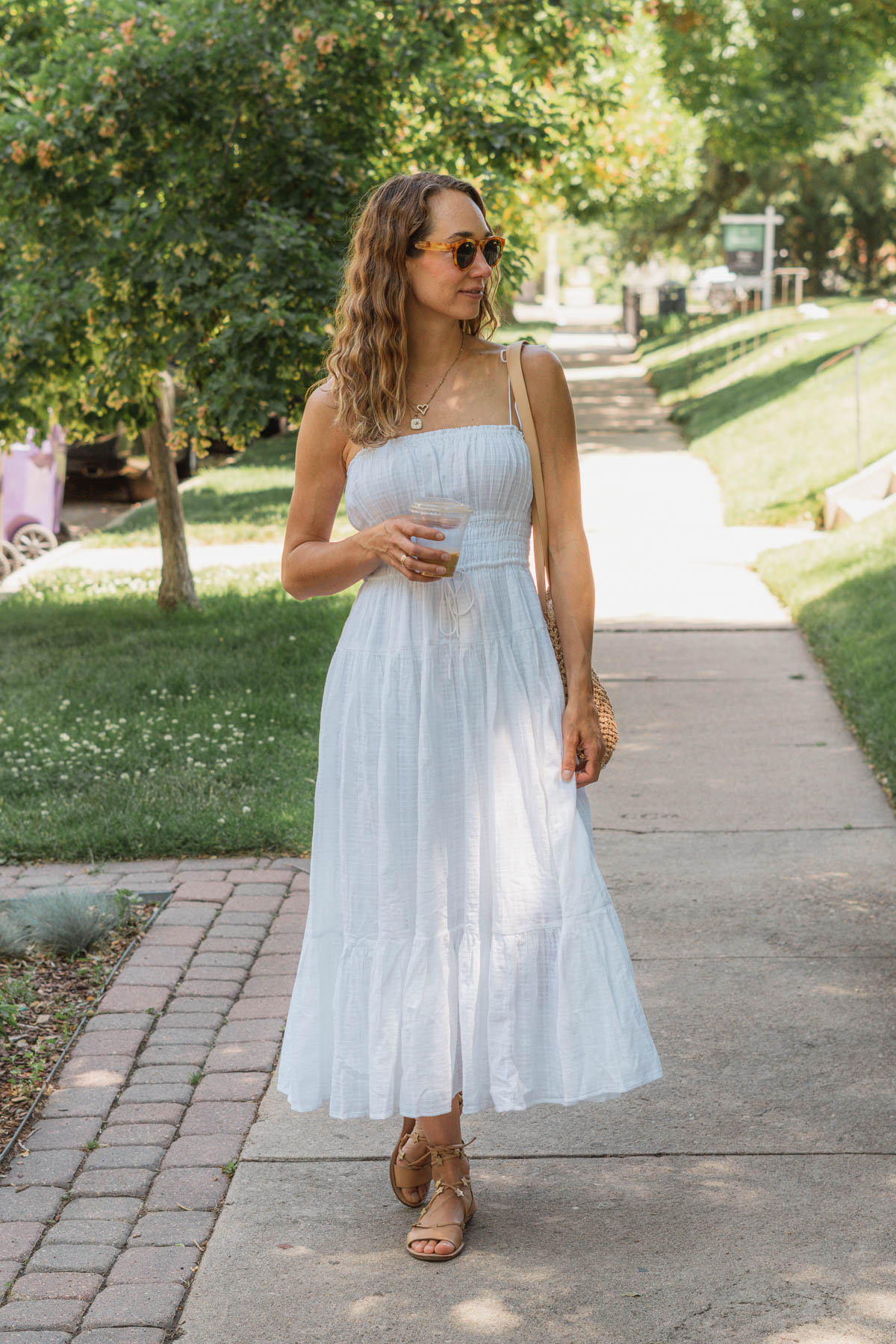
You must be logged in to post a comment.